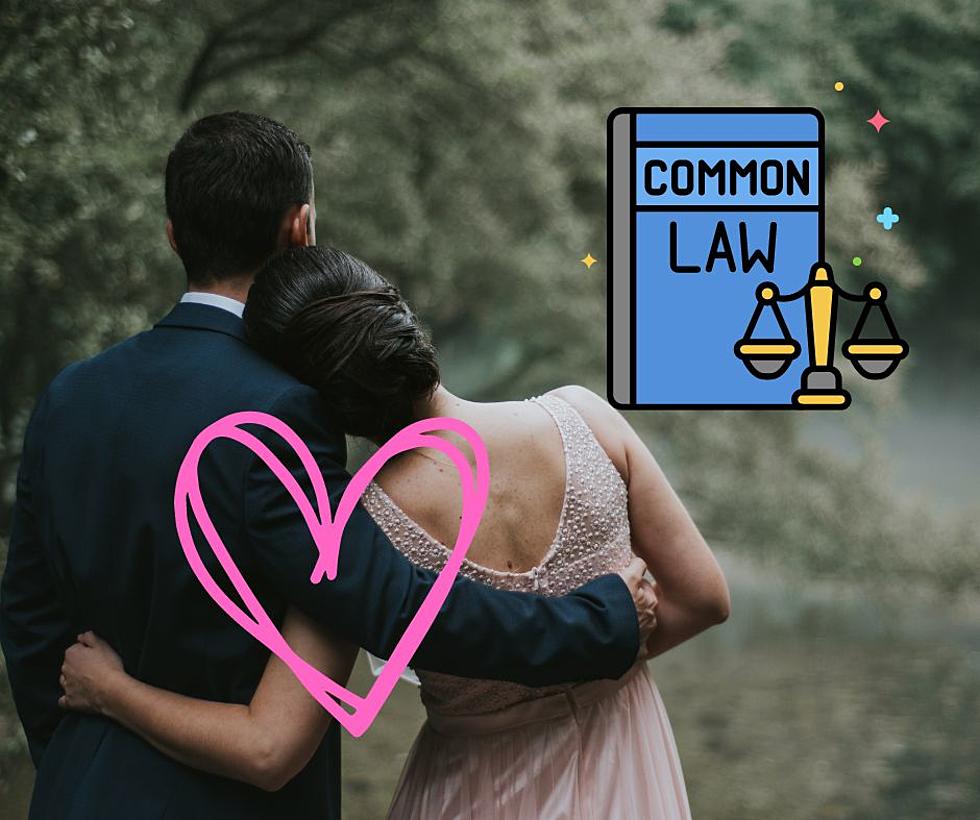What is common law marriage Wisconsin? How do you know if you are in a common law marriage? And, what are the benefits and drawbacks of having a common law marriage? These are all important questions to ask if you think you might be in a common law marriage or if you are considering entering into a common law marriage. Keep reading for answers to these questions and more!
Contents
- 1 What Is Common Law Marriage?
- 2 What Is Common-Law Marriage In Wisconsin?
- 3 Does Wisconsin Recognize Common-Law Marriages?
- 4 What Is A Cohabitation Agreement In Wisconsin?
- 5 How Many Years Do You Have To Live Together For Common-Law Marriage In Wisconsin?
- 6 How Do You Prove A Common-Law Marriage In Wisconsin?
- 7 What Are The Requirements For A Common-Law Marriage In Wisconsin?
- 8 Advantages And Disadvantages Of Common Law Marriage Wisconsin
- 9 FAQ: Common Law Marriage
- 9.1 How do you prove a common-law marriage after death?
- 9.2 Do common-law marriages require a divorce?
- 9.3 Does a common-law wife have rights in wisconsin?
- 9.4 Can a common-law wife collect social security benefits in wisconsin?
- 9.5 Are common-law wives entitled to half in wisconsin?
- 9.6 How do you get a common-law marriage affidavit in wisconsin?
- 9.7 When did common-law marriage end in wisconsin?
- 9.8 What is considered common-law marriage in wisconsin?
- 9.9 What is the difference between common-law marriage and domestic partnership?
- 9.10 Does the federal government recognize wisconsin common-law marriage?
- 10 Conclusion: Common Law Marriage Wisconsin
What Is Common Law Marriage?
A common law marriage is an informal marriage. That means that it’s a legal marriage, but it doesn’t require you to have a ceremony or obtain a license and file it with the state. In Wisconsin, your rights and responsibilities as a married couple are identical to the rights and responsibilities of couples who legally marry by having a wedding ceremony, obtaining a marriage license, and filing the license with the state.

What Is Common-Law Marriage In Wisconsin?
In Wisconsin, common-law marriage is defined as a legal marriage that takes place without a formal ceremony or license. The requirements for entering into a common-law marriage under Wisconsin law are similar to the requirements for entering into any other type of legal marriage: you must be at least 18 years old and mentally competent to enter into the contract, and you and your partner must have the intention to be legally married, either openly or secretly.
There are some important factors that are considered when determining whether a couple has entered into a common-law marriage Wisconsin. For example, if you have been living together as a married couple for at least one year, this is often seen as evidence that you intended to be married. Additionally, if you present yourselves to the public as a married couple or hold yourselves out as being married, this can also help prove that you intended to enter into a common-law marriage.
Does Wisconsin Recognize Common-Law Marriages?
Yes, in Wisconsin, common-law marriages are legally recognized. So regardless of whether you entered into your marriage by having a ceremony or getting a marriage license, the rights and responsibilities that come with being married will apply to you. In addition to the legal protections that are associated with being married, there are also some practical benefits of being in a common-law marriage. For example, you will be eligible for some spousal benefits, such as health insurance coverage under your partner’s policy or a survivor’s benefit from Social Security.
What Is A Cohabitation Agreement In Wisconsin?
In addition to entering into a common-law marriage, another way to protect your rights and responsibilities as a married couple in Wisconsin is by drafting and signing a cohabitation agreement. A cohabitation agreement is essentially a contract that outlines the rights, responsibilities, and obligations of each partner in the relationship. This can be particularly helpful if you are in a long-term relationship or if you are engaged but not planning to marry.
Some of the issues that can be addressed in a cohabitation agreement include child custody, child support and visitation, property division, financial support, and any other terms that you agree upon together. If you need assistance drafting your cohabitation agreement or have questions about your rights and responsibilities under Wisconsin law, it may be helpful to consult with a family law attorney in your area.

How Many Years Do You Have To Live Together For Common-Law Marriage In Wisconsin?
In Wisconsin, there is no specific length of time that you must live together as a married couple to establish a common-law marriage. However, in order to prove that you entered into a common-law marriage, it can be helpful to have documentation of your cohabitation and shared finances for at least one year. This can include joint bank accounts, insurance policies, tax returns, and lease agreements, among other types of evidence. If you are in a long-term relationship and are unsure whether you have entered into a common-law marriage Wisconsin, it may be wise to consult with an attorney who can help clarify your rights and legal options under the law.
Whether you are living together without a license or you have entered into a common-law marriage, it is important to fully understand the rights and responsibilities associated with your relationship so that you can protect yourself in the event of a separation or divorce. For more information about common-law marriages in Wisconsin, contact an experienced family law attorney in your area today.
How Do You Prove A Common-Law Marriage In Wisconsin?
In Wisconsin, there are several circumstances that can be used as evidence of a common-law marriage. Some of these include having a ceremony in front of family and friends, filing a joint tax return for one year, owning real or personal property together, presenting yourself as a married couple to the public by changing your names or referring to each other as husband and wife, filing a joint insurance policy with one partner being listed as the other’s spouse or beneficiary, or receiving benefits from Social Security as a spouse.
If you need assistance proving that you entered into a common-law marriage in Wisconsin, it can be helpful to consult with an attorney who can help you gather evidence and provide additional information about the steps involved in this process.

What Are The Requirements For A Common-Law Marriage In Wisconsin?
In order to establish a common-law marriage in Wisconsin, you must meet the following requirements: both partners must be over the age of 18, they must agree that they are married and intend to remain so indefinitely, and they must live together as a couple. Additionally, it is important to note that no witnesses are required when entering into a common-law marriage, and you do not need to file any paperwork or receive a license from the state in order to establish this type of legal union.
If you have questions about whether you have entered into a common-law marriage in Wisconsin, it may be helpful to consult with a family law attorney who can help you understand your rights and obligations under the law. In addition, a legal professional can help you prepare any necessary documentation to prove your status as a married couple, and represent your interests in court if necessary.
Advantages And Disadvantages Of Common Law Marriage Wisconsin
There are both advantages and disadvantages to entering into a common-law marriage in Wisconsin. Some of the main benefits of this type of legal union include the ability to share property and expenses, file joint tax returns, receive health insurance benefits from your spouse’s employer, obtain spousal support in the event of a separation or divorce, and have more control over the division of your assets in the event of a separation or divorce.
However, one potential disadvantage of common-law marriage is that there are often fewer legal protections for couples who do not enter into a formal marriage. For example, you may be at risk of losing access to certain benefits or resources if you do not have a marriage license, or if you are unable to prove legally that you are married. In addition, a common-law marriage may not be recognized in states other than Wisconsin, which can make it difficult to travel or move out of state as a couple.
If you are considering entering into a common-law marriage in Wisconsin and have questions about the process, legal implications, or potential benefits and drawbacks of this type of union, it may be helpful to consult with a family law attorney in your area. An experienced legal professional can help you understand the requirements for common-law marriage in Wisconsin, and provide guidance on how best to protect yourself and your relationship moving forward.
FAQ: Common Law Marriage
How do you prove a common-law marriage after death?
There is no single answer to this question, as the process of proving a common-law marriage can vary depending on the circumstances. Typically, you will need to provide evidence of your shared financial and legal obligations with your spouse, such as joint ownership of property or joint tax filings. Other potential forms of documentation may include witness statements or affidavits from other people who are familiar with your relationship. Depending on the situation, it may also be helpful to consult with an attorney who can help you gather and present evidence in support of your claim.
Do common-law marriages require a divorce?
There is no single answer to this question, as the rules and requirements for ending a common-law marriage can vary by state. In Wisconsin, for example, couples in a common-law marriage must go through the same legal divorce or separation process as couples who have entered into a formal marriage.
Does a common-law wife have rights in wisconsin?
In Wisconsin, a common-law wife does have certain rights and legal protections under state law. For example, she may be entitled to spousal support or alimony payments in the event of a separation or divorce, as well as other benefits that are typically reserved for married couples.
In some cases, a common-law wife may be able to collect social security benefits in Wisconsin. This is typically contingent upon meeting certain eligibility requirements, such as having been in the marriage for at least 10 years prior to filing your claim. In addition, you will need to provide evidence that your relationship meets the definition of a common-law marriage according to state law. It may be helpful to consult with a family law attorney who can help you understand your rights and make a claim for benefits, if applicable.
Are common-law wives entitled to half in wisconsin?
In Wisconsin, common-law wives are typically entitled to an equitable share of marital assets and property in the event of a separation or divorce. This can include any joint financial accounts, real estate holdings, or other resources that you may have accumulated during your relationship.
How do you get a common-law marriage affidavit in wisconsin?
In Wisconsin, there is no single process for obtaining a common-law marriage affidavit. Typically, you will need to submit an application or other form of documentation that verifies your relationship with your spouse and confirms that you have met the legal requirements for a common-law marriage in your state. This may typically involve providing evidence of shared expenses, cohabitation, and other factors that indicate you are in a common-law marriage. It may be helpful to consult with an attorney who can help you gather this supporting documentation and make your claim for benefits or legal protections.
When did common-law marriage end in wisconsin?
The state of Wisconsin no longer recognizes common-law marriages that were entered into after January 1, 2016. Prior to this date, couples in a common-law marriage had to register their relationship with the state and meet certain other legal requirements. If you are currently in a common-law marriage in Wisconsin, it is important to understand your rights and legal protections under state law, and to consult with an attorney if you are considering ending your relationship.
What is considered common-law marriage in wisconsin?
There is no single definition for common-law marriage in Wisconsin. Instead, state law indicates that a couple must meet certain requirements to qualify as being in a common-law marriage, such as having lived together for a specific period of time, having shared expenses or resources, and adhering to other factors that indicate they are considered married under state law. It is important to consult with an attorney or family law professional who can help you understand if your relationship qualifies as a common-law marriage under state law.
What is the difference between common-law marriage and domestic partnership?
The main difference between a common-law marriage and a domestic partnership is that a common-law marriage is recognized under state law, while a domestic partnership typically only provides legal protections at the municipal or county level. In addition, common-law marriages are typically much more formal than domestic partnerships, and require couples to meet specific legal requirements in order to be legally recognized.
Does the federal government recognize wisconsin common-law marriage?
There is no clear answer to this question, as the federal government does not always recognize common-law marriages that are recognized under state law. However, it is possible that your relationship may be eligible for certain benefits and protections at the federal level, such as social security or tax benefits. You should consult with an attorney or legal professional to help you understand your rights and eligibility for federal benefits, and to help you make a claim if applicable.
Conclusion: Common Law Marriage Wisconsin
If you are currently in a common-law marriage in Wisconsin, it is important to understand the rights and protections that you may be entitled to under state law. This can include an equitable share of marital assets, support payments during a separation or divorce, or other legal protections. It may also be helpful to consult with an attorney who can help you gather the necessary documentation and navigate the legal process of establishing a common-law marriage in your state.
Scott A. Bentley Attorney at Law in McHenry, IL is a debt relief and personal injury attorney dedicated to helping people in their time of need. He can assist in filing bankruptcy under the bankruptcy code or work with you through a personal injury case. His more than 25 years of experience provide him with the insight and knowledge you need when contending with difficult legal issues. Scott Bentley bankruptcy services stop: Creditor harassment, Lawsuits, Garnishments, Foreclosures, Repossessions, By filing for chapter 7 or 13 bankruptcy with Scott Bentley, you’ll also be able to create personal reorganization plans that serve to resolve individual bankruptcy issues. He and his staff are committed to providing you with dignified service and the respect you deserve. Just because you owe someone or some company money doesn’t mean you forfeit your rights. With Mr. Bentley you can be sure you will receive personalized attention and aggressive legal representation. The firm is proud to

